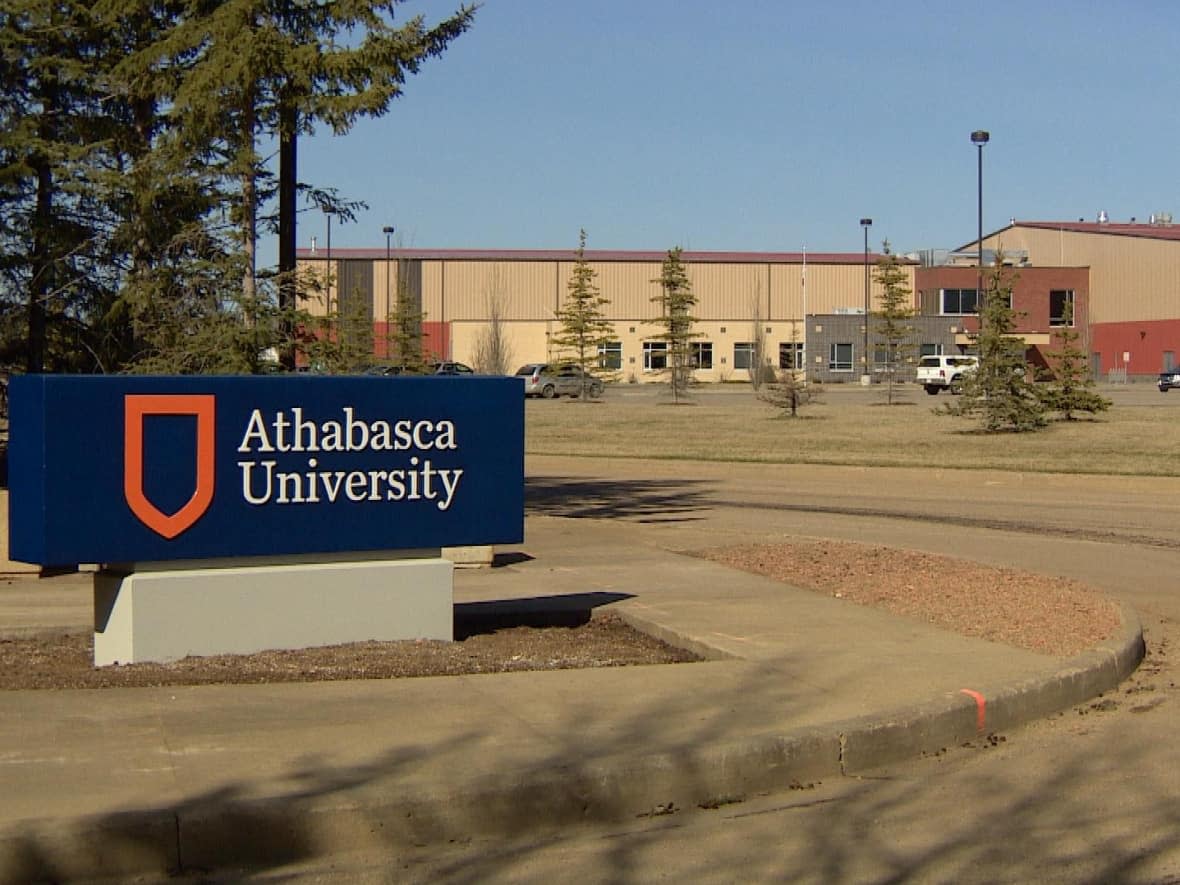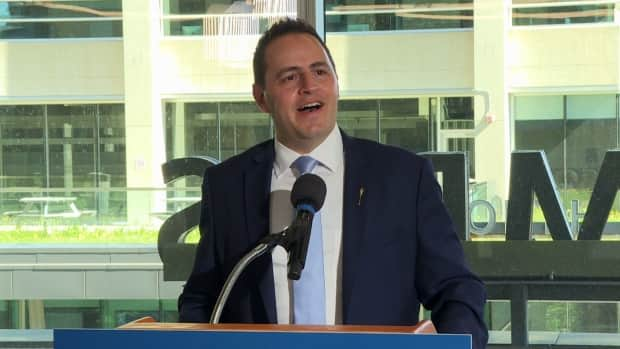Province threatens funding cuts to Athabasca University over virtual campus plan

The province has raised the stakes in its battle with Athabasca University by threatening to pull the institution's monthly operating grant of $3.4 million.
At issue is a university strategy to move much of its operations online. Advanced Education Minister Demetrios Nicolaides said the university failed to comply with earlier directives to abandon the plan and strengthen its presence in the town of Athabasca.
"This has resulted in the need for Alberta's government to take substantive action," Nicolaides said in a written statement on Tuesday.
"Through the tools available to us, we've directed to Athabasca's board that the university must end its pursuit of the near-virtual strategy and must deliver a new strategic plan to Advanced Education for approval by September 30th.
"Failure to comply will result in reductions to Athabasca's future funding."
Nicolaides wants the board to sign an updated Investment Management Agreement (IMA) by the end of August.
He sent a letter last week to Byron Nelson, chair of AU's board of governors, outlining the additions to the IMA.
The board is to instruct AU president Peter Scott to abandon the move to near-virtual operations, start implementing a strategy to expand the university's in-person operations at its campus in Athabasca, and deliver the plan to the province by the end of September.
The university must ensure every member of its executive works full time in Athabasca by March of 2025 and report on how many employees leave each year.
'Near-virtual' operations
The letter from Nicolaides is the latest salvo in a battle between the university and the province that started in 2020 when members of the board of governors approved a plan to move to what it called "near-virtual" operations.
That meant new and existing staff members could work at Athabasca University remotely without having to set foot in the northern Alberta community.
A grassroots group called Keep Athabasca in Athabasca University was alarmed by the potential loss of well-paying jobs within the community so members waged a high profile campaign against the new strategy.
Their efforts culminated in a visit by Premier Jason Kenney to announce his government's commitment to expanding the university's in-person footprint in Athabasca.

The university was ordered to submit plans to Nicolaides outlining how it would make that happen by the end of June.
Several weeks after Kenney's visit, AU president Scott sent an email to staff indicating that nothing was changing with AU's direction.
Nicolaides then replaced board chair Nancy Laird with Byron Nelson, a Calgary lawyer who ran for the leadership of the Progressive Conservative party in 2016.
Nelson and Scott have not responded to requests for comment.
'It went too far'
Rhiannon Rutherford, president of the Athabasca University Faculty Association, said she hopes AU complies with the minister's request. But she also said Nicolaides should reconsider his approach.
"This threat to reduce AU's funding is, while we may support a continued presence of AU in Athabasca, also unfortunately a threat to AU staff and students," she said. "And we think that it went too far."
Rutherford said the association supports efforts to get more people working in Athabasca, particularly the university executive.
She said the government should help fund incentives, like moving expenses and help with spousal employment, instead of relying on threats to get new hires to move to the town.
NDP education critic David Eggen also criticized the UCP government for its pugilistic approach.
"It never should have come to this," Eggen said. "For the UCP government to use threats and adversarial approaches to this only makes it worse."


